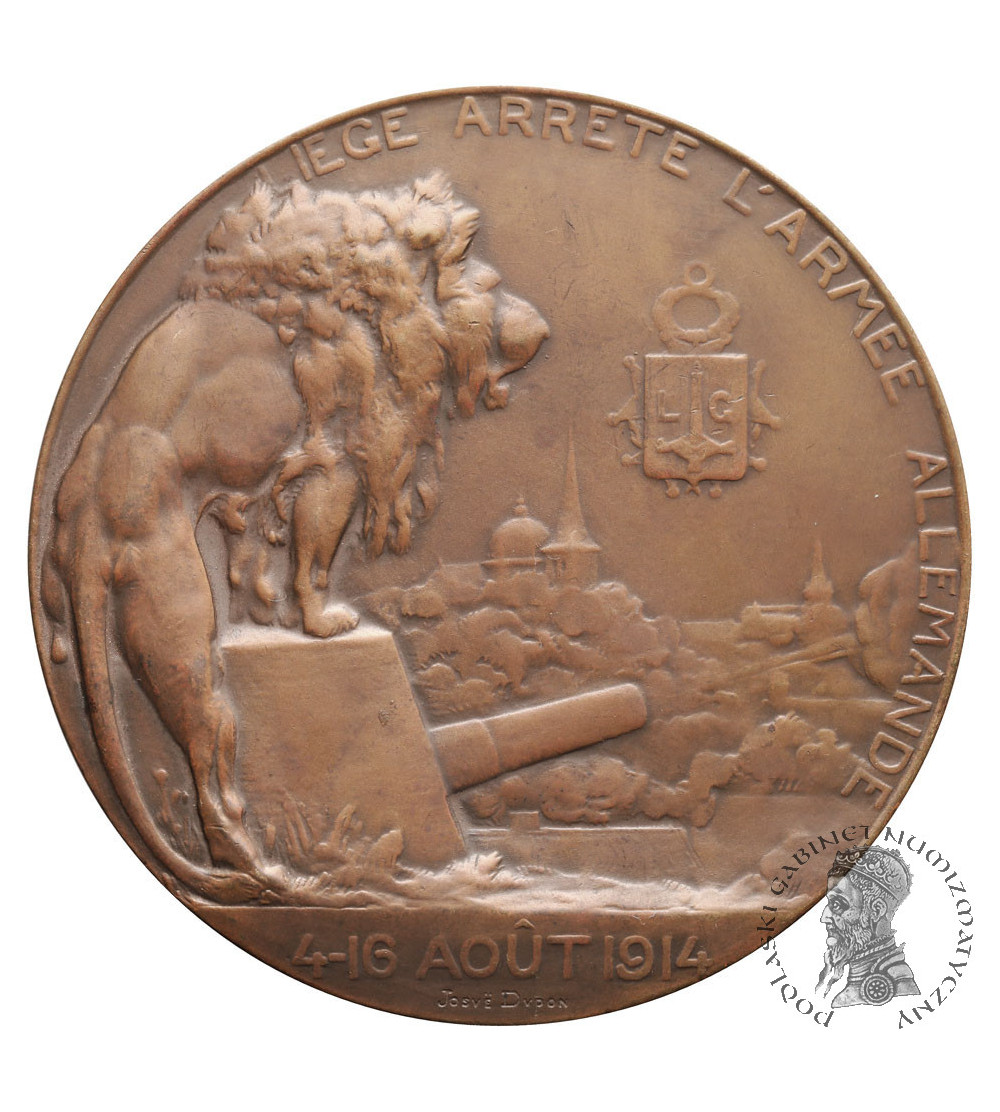




Belgium. Bronze Medal 1920, commemorating he victory at Liege over German troops in 1914, by Josue Dupon, Jules Fonson, Bronze 70,00 mm, weight 111,50 g., mintage 500 pcs., Condition UNC, nice brown patina, large and impressive medal.
After World War I, the association Les Amis de la Médaille d'Art decided to issue a series of medals dedicated to the horrors of war. This medal about Liege, issued in 1920, is the second in the series. From August 4 to 16, Lieutenant General Leman defended his hometown against the advancing German army. The last bastion to fall was Ford Lantin, where the general had his headquarters. On the obverse, Josuë Dupon depicts an allegorical representation of the city of Liège, a naked woman kneeling and a cuffed eagle captured by the German occupiers. On the reverse is an allegorical representation of Liège's victory over the German army in August 1914: a lion triumphs over the Liège skyline. This medal, intended for members of the association, was minted in an edition of: 10 pieces in silver and 500 pieces in bronze (source: mskgent.com). The German invasion of Belgium was a military campaign which began on 4 August 1914. Earlier, on 24 July, the Belgian government had announced that if war came it would uphold its neutrality. The Belgian government mobilised its armed forces on 31 July and a state of heightened alert (Kriegsgefahr) was proclaimed in Germany. On 2 August, the German government sent an ultimatum to Belgium, demanding passage through the country and German forces invaded Luxembourg. Two days later, the Belgian government refused the demands and the British government guaranteed military support to Belgium. The German government declared war on Belgium on 4 August; German troops crossed the border and began the Battle of Liège.
The Battle of Liège (5–16 August 1914) [also French: Bataille de Liège] was the opening engagement of the German invasion of Belgium and the first battle of the First World War. The city of Liège was protected by a ring of modern fortresses to form the Fortified position of Liège, one of several fortified cities to delay an invasion to allow troops from the powers which had guaranteed Belgian neutrality to assist the Belgian Army to expel the invaders. source: wikipedia